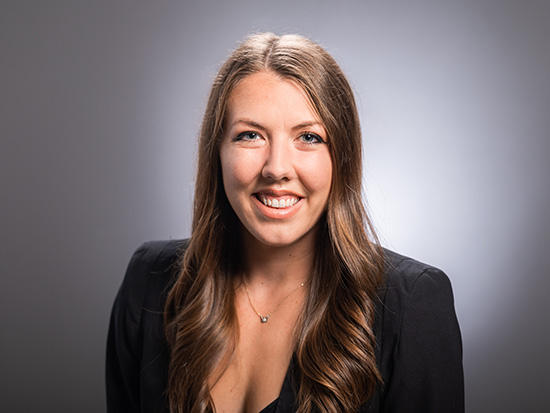Ellen Mwenesongole, Ph.D., Ellen Mwenesongole, Ph.D. associate professor in the University of Alabama at Birmingham’s Department of Criminal Justice, moved to Birmingham in January 2022. Prior to coming to UAB, Mwenesongole studied and worked at universities in the United Kingdom, South Africa, and Botswana.
Ellen Mwenesongole, Ph.D. associate professor in the University of Alabama at Birmingham’s Department of Criminal Justice, moved to Birmingham in January 2022. Prior to coming to UAB, Mwenesongole studied and worked at universities in the United Kingdom, South Africa, and Botswana.
Burel Goodin, Ph.D., associate professor in UAB’s Department of Psychology, wanted to learn more about Mwenesongole’s journey to UAB and her scholarly work, so he recently conducted a digital interview with her. Below is an edited summary of their conversation.
Goodin: What brings you to UAB and how has the transition been?
Mwenesongole: I chose to come to UAB due to its reputation as a research-intensive university and because it has one of the few accredited master’s in forensic science degree programs in the U.S. The opportunities offered to faculty for career development, research, and teaching also attracted me to UAB, as did its genuine approach and effort towards diversity, equity, and inclusion. After being appointed by UAB, I initially started teaching online while based in Botswana, which was not easy with the time difference. Now, it is so much better being in the same country while teaching. It’s been a few months since I arrived in Birmingham, so I’m still in the transition period, but I realize that there are more similarities than differences from previous universities I’ve worked at.
Goodin: You seem to have a varied education and work experience, tell us more about that.
Mwenesongole: My venture into further education actually started at Procter & Gamble in South Africa where I worked as a senior scientist after obtaining my bachelor’s degree in chemistry. I wanted to be part of the research and development team, but, at that time, most of my workmates in that section had master’s or Ph.D. degrees. Therefore, I took time out to get a master’s degree with the intention of returning to the corporate world as a research and development scientist. I guess the study-bug bit, and I ended up with chemistry and forensic science master’s degrees from University of Pretoria and University of Strathclyde, respectively, and a Ph.D. in Forensic Science from Anglia Ruskin University. I interspaced my studies with working at a pharmaceutical company in Scotland and a doping control laboratory in South Africa before venturing into academia to lead the development of forensic science programs at universities in South Africa and Botswana.
Goodin: How did you end up in forensic science?
Mwenesongole: My interest in science was ignited when I was in junior high school—from that point forward, I knew I’d end up as some sort of scientist. Also, my interest in mystery crime novels and movies fuelled my passion to contribute to using science to aid in investigating criminal incidents.
Goodin: What are your current research interests?
Mwenesongole: My key focus area of research is in analyzing drugs of abuse (illicit and pharmaceutical) from different matrices such as blood, urine, and wastewater. Analysis of wastewater provides a quick snapshot of what drugs a particular community is using and can help with developing appropriate intervention measures from a law enforcement, health, or education perspective. It’s research that I have conducted in the U.K. and Botswana and plan to continue in the U.S. In recent years, I’ve also been involved in the chemical profiling of illicit drugs for intelligence purposes.
Goodin: What is your thought on collaborations—are you open to collaborations?
Mwenesongole: Once you realize that no one person, department, university, organization, or other entity holds the key to solving any problem, you start appreciating that answers to problems can come about much quicker when you collaborate with others. I’ve collaborated with universities in the U.K., Botswana, and South Africa and hope to extend that into U.S. universities as well as other departments at UAB. The most effective collaborations are those in which every team member’s voice is heard and their competence and experience in a particular area is harnessed for the good of the overall research project. Collaborations that fizzle out within a short time are those where a few team members think they know best and impose ideas onto others rather than incorporating various ideas and ways of doing things to arrive at the best outcome.
Goodin: What would you like to see changed or improved in your area of teaching or research?
Mwenesongole: Forensic science still has many unchartered areas of research both on a local and global scale. I’d like to see more collaboration with various departments—such as engineering and the legal department—to develop relevant and unique products that can be used in teaching and research. More work also needs to be done to collaborate with relevant stakeholders, including various law enforcement agencies and forensic labs nationally and internationally. Also, we must find opportunities to collaborate with other forensic programs. There is so much one can learn from interacting with a diverse portfolio of collaborators.
Goodin: What are your expectations from UAB and what do you hope to achieve?
Mwenesongole: My expectations of UAB are tied to what attracted me to the university in the first place. I expect to be given the space to use the opportunities at hand to grow my teaching and research portfolio. We must avoid saying, “We have always done things this way,” because that mindset can become a hindrance to teaching and research. I look forward to freely contributing to the growth of the department, college, and university.


